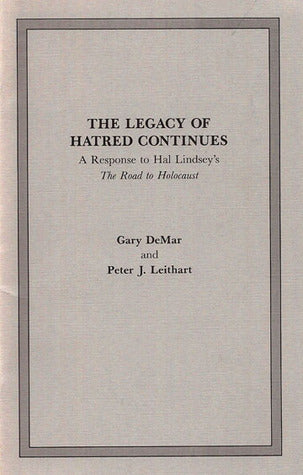Gary answers email questions that he has received recently about Romans 11 and what “all Israel” being saved means.
During the sixteenth century, in the Reformation and immediate post-Reformation period, several theologians addressed the question of Israel’s place in God’s plans for the future. Theodore Beza, John Calvin’s successor in Geneva, taught, according to English theologian Thomas Brightman, that the world would “be restored from death to life againe, at the time when the Iews should also come, and be called to the profession of the Gospel.” Martin Bucer, the reformer of Strassbourg who had a direct influence on English Puritanism, wrote in a 1568 commentary on Romans that Paul prophesied a future conversion of the Jewish people. Peter Martyr Vermigli, who taught Hebrew in Strassbourg and later at Oxford, agreed.
Peter Toon describes the transmission of this interpretation from the Continent to England, Scotland, and America:
… the word ‘Israel’ in Romans 11:25ff., which had been understood by Calvin and Luther as referring to the Church of Jews and Gentiles, could be taken to mean ‘Jews’, that is non-Christian Jews whose religion was Judaism. Beza himself favoured this interpretation of Romans 11 and he was followed by the various editors of the influential Geneva Bible, which was translated in Geneva by the Marian exiles during the lifetime of Beza. In the 1557 and 1560 editions short notes explained that ‘Israel’ meant ’the nation of the Jews’ but in later editions (e.g. 1599) the note on Romans 11 stated that the prophets of the Old Testament had predicted a future conversion of the nation of the Jews to Christ. Through this Bible and the writings of the Puritans (e.g. William Perkins, Commentary on Galatians, and various books by Hugh Broughton) the doctrine of the conversion of the Jewish people was widely diffused in England, Scotland, and New England.[1]
This emphasis fits neatly into the postmillennial scheme: The latter-day glory of the church will be inaugurated by the conversion of the Jews to Christ; this is what Paul meant when he said that the conversion of the Jews would be “life from the dead” (Romans 11:15). There were other views of Paul’s prophecy available at the time of the Reformation. As Toon notes, Calvin and Luther taught “Israel” in Romans 11 was the church. Another school of interpretation understood Romans 11:26 (“all Israel shall be saved”) not as a future dramatic conversion of the Jews but as the gradual conversion of the Jews throughout history. It is significant that this latter view was “almost uniformly rejected by English and Scottish exegetes of the Puritan school.” They favored instead the view that the Jews would someday be converted in mass.

The Legacy of Hatred Continues
"Anti-Semitism." The word conjures up thoughts of Nazism, Adolf Hitler, and gas ovens. In our day "anti-semitism" is real, with swastikas painted on synagogues and verbal epithets hurled at Jews by the Ku Klux Klan and so-called "white supremacists." Purging our land of such an evil will not be accomplished by accusing someone of "anti-Semitism" when there is not a shred of evidence to support the claim. Hal Lindsey labeled anyone who did not agree with him on the issue of eschatology as "unconsciously anti-Semitic." Lies and slander will accomplish nothing.
Buy NowGary answers email questions that he has received recently about Romans 11 and what “all Israel” being saved means. The most influential and popular view is Dispensationalism and its understanding of this passage is to split it off and push it far into the future. This doesn’t work exegetically or contextually, where Paul is talking about his own present day.
Click here for today’s episode
Click here to browse all episodes of The Gary DeMar Podcast
[1] Peter Toon, “The Latter-Day Glory,” in Puritans, the Millennium and the Future of Israel: Puritan Eschatology 1600-1660, Peter Toon, ed. (Cambridge: James Clarke, 1970), p. 24.

